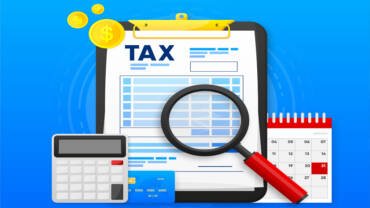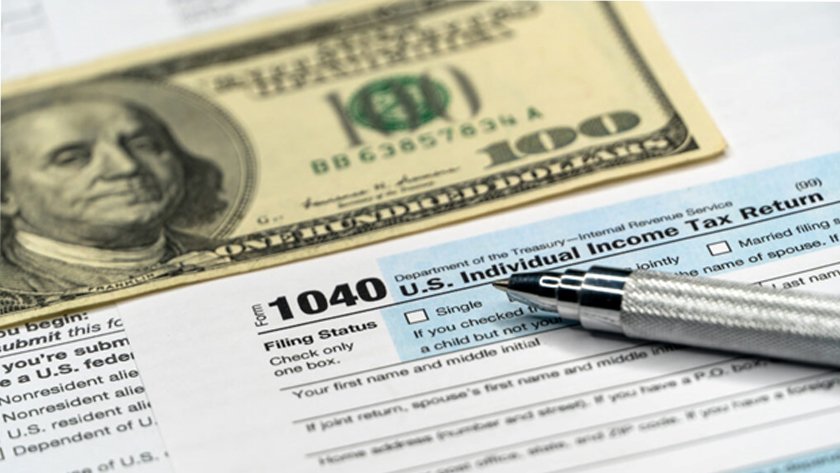Introduction
Attention, taxpayers! Brace yourselves for a riveting journey into the treacherous realm of IRS tax audits. Picture this: you’re peacefully sipping your morning coffee when an unexpected envelope arrives. Your heart races as you unfold its contents, revealing the dreadful words—IRS AUDIT NOTICE. Panic sets in, but fear not, for Barron Income Tax is here to your rescue.
In this eye-opening exposé, we delve into the Top 7 Reasons the IRS Will Audit You, uncovering the secret triggers that ignite their scrutiny. From mysterious deductions to unreported income, we unravel the enigma of what draws their attention like moths to a flame. Discover how an IRS audit attorney can become your mighty shield against this bureaucratic juggernaut. So, gather your wits and embark on this gripping odyssey that will transform your understanding of the IRS’s watchful gaze.
Table of Contents
Failing to Report All Income
One of the most common reasons for an IRS audit is failing to report all taxable income. Whether intentional or accidental, omitting income can catch the attention of the IRS. Any income received, including freelance work, rental income, or side gigs, must be reported accurately on your tax return.
Any discrepancies or inconsistencies, such as mismatched income and deductions, may raise red flags and prompt further investigation. Therefore, it is vital to double-check your tax return for errors and ensure all information is accurately reported.
Claiming Excessive Deductions
While deductions are a legitimate way to reduce your taxable income, claiming excessive or unreasonable deductions can raise red flags. The IRS compares deductions claimed by taxpayers within similar income brackets, and if yours seem unusually high, it could trigger an audit. Ensure that you have proper documentation and receipts to support your deductions.
Running a Cash-Based Business
Operating a business that primarily deals in cash transactions can attract the attention of the IRS. Cash-based businesses, such as restaurants, salons, or small retail establishments, have a higher risk of underreporting income. Keep detailed records, maintain a separate business bank account, and consider using electronic payment methods to demonstrate transparency and accuracy.
Large Charitable Deductions
Donating to charities is commendable, but claiming large deductions without proper documentation can lead to an audit. If you make substantial charitable contributions, ensure you have receipts, acknowledgment letters, or any other supporting documentation required by the IRS. Maintain a record of the organization’s tax-exempt status as well.
High-Income Earners
High-income earners are more likely to face an IRS audit due to the potential for significant tax liabilities. The IRS focuses on taxpayers whose income surpasses certain thresholds. Accurate reporting of your income, paying the appropriate taxes, and providing supporting documentation for any deductions or credits claimed are crucial.
Suspicious Offshore Accounts
The IRS has increased its scrutiny of offshore accounts and foreign income. If you have financial assets or income in foreign accounts, it’s essential to comply with the IRS’s reporting requirements. Failure to disclose offshore accounts can result in severe penalties and potential criminal charges. With increased global financial transparency, the IRS has become more vigilant in pursuing taxpayers who hide income and assets in offshore accounts. Ensure you adequately disclose any offshore accounts and report all foreign income as tax laws require to avoid unwanted attention from the IRS.
Inaccurate or Incomplete Records
One of the most common reasons the IRS audits individuals is the presence of inaccurate or incomplete information on tax returns. Any discrepancies or inconsistencies, such as mismatched income and deductions, may raise red flags and prompt further investigation.
Maintaining accurate and complete records is crucial for every taxpayer. The IRS may initiate an audit if your records are inconsistent, missing, or incomplete. Keep copies of tax returns, receipts, invoices, bank statements, and any other supporting documents for at least seven years. Good record-keeping helps during an audit and allows you to identify and rectify any potential errors before filing your tax return.
Conclusion
Knowing the reasons the IRS may choose to audit you can help you avoid unnecessary complications and stress. Remember to report all income accurately, substantiate deductions, maintain proper records, and comply with reporting requirements for offshore accounts. If you face an IRS audit or have any tax concerns, it’s wise to seek guidance from professionals like Barron Income Tax, who specialize in IRS audits and can provide expert assistance. Stay proactive, ensure compliance, and protect your financial well-being.
Note: For professional advice and assistance regarding IRS audits or tax matters, it is recommended to consult with experienced professionals like Barron Income Tax, who specialize in IRS audit representation and tax law.
At Barron Income tax services, we specialize in tailoring the right service for our clients. We understand every customer has Read more
When you first start filing your tax returns, one of the many questions that come into mind is; should I Read more
With rules changing on sudden notice and many businesses having to enforce limits & restrictions on their premises. It is Read more
If you are the one who engages in business outside his country or deals with overseas legal documents, you need a Read more
After months of negotiations the $1,400 stimulus check has been approved and ready to go! In this article, we will Read more
Are you tired of struggling with bookkeeping mistakes that can jeopardize your business? Look no further! Barron Income Tax has Read more
Tax season frequently emerges as one of the most anxiety-inducing periods in the lives of taxpayers. Meeting the stringent filing Read more
Are you a small business proprietor dreading the impending tax season? The prospect of delving into heaps of paperwork and Read more








